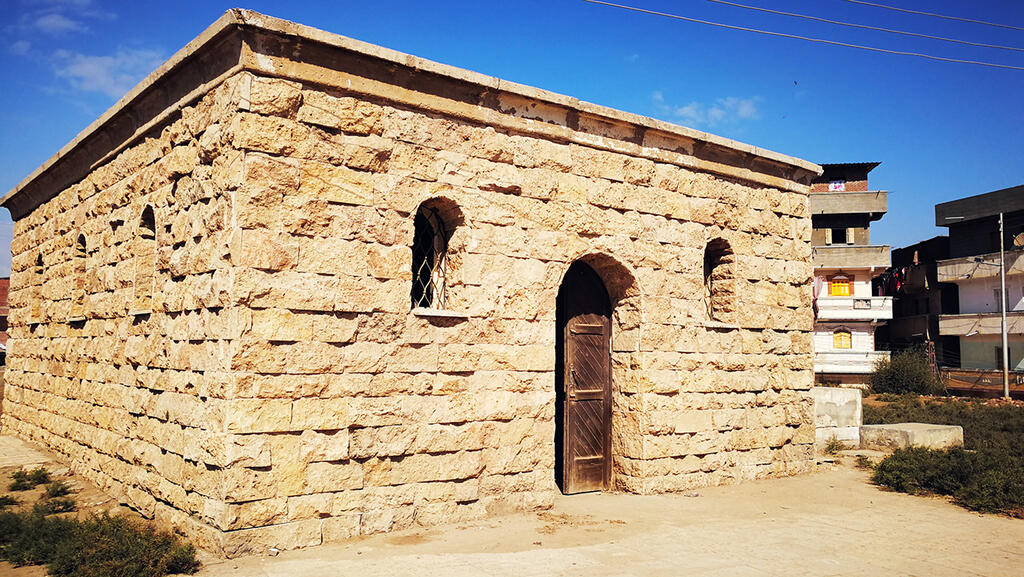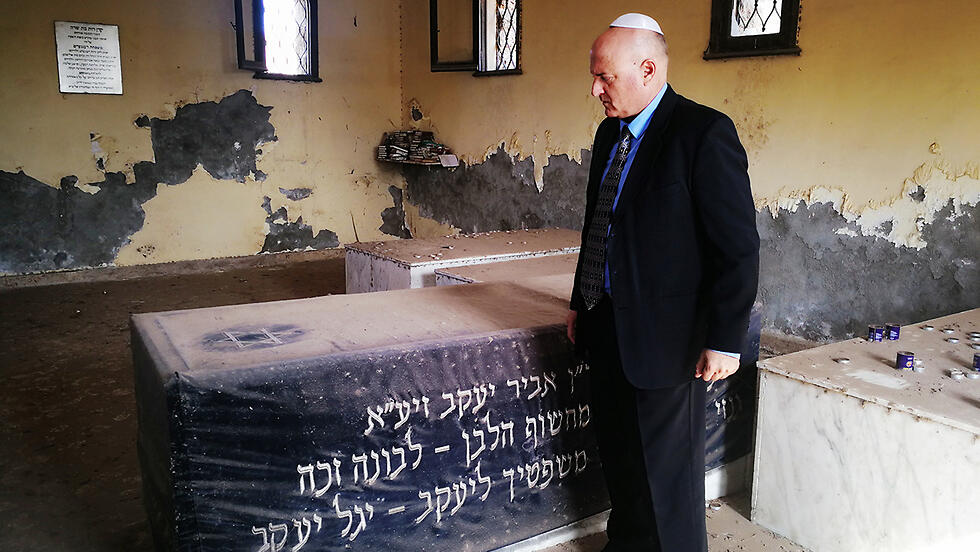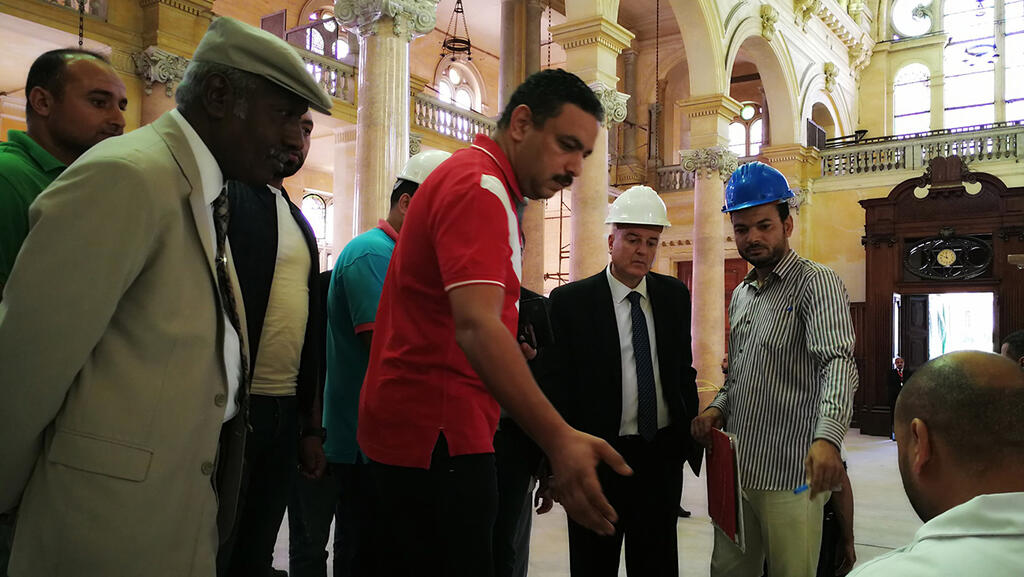Getting your Trinity Audio player ready...
A group of Israeli volunteers arrived Monday in Egypt, in a covert operation to restore the gravesite of Rabbi Yaakov Abuhatzeira, a leading Moroccan-Jewish rabbi, which has been neglected for years.
The operation in the city of Damanhur was conducted in coordination with Egyptian authorities, with the volunteers cleaning the grave and its perimeter, replacing broken windows and repainting the walls of the tomb.
The operation took several hours to complete, and was done after Abuhatzeira’s family had been asking Egyptian authorities for a number of years to allow the renovation.
The Abuhatzeira family hopes that Egyptian authorities will now be more accepting of potential Israeli pilgrims arriving at the burial site once a year, a tradition that was banned by Egyptian authorities in 2012 over “moral offenses” allegedly committed by Jewish revelers.
Following the ban, former Israeli Ambassador to Egypt David Govrin was the first to visit the site in 2017, documenting the poor state in which the grave was at the time.
Israeli Ambassador to Egypt Amira Oron met with Chief Rabbi Yitzhak Yosef and promised she would appeal to Egyptian authorities in order to allow for the grave to be properly renovated.
Rabbi Yaakov Abuhatzeira was the grandfather of Israel Abuhatzeira, nicknamed the “Baba Sali,” one of the most important rabbis in the Jewish Moroccan community.
Born in 1806 in Morocco, Rabbi Yaakov Abuhatzeira wished to immigrate to Israel. Leaving in 1879, he had attempted to reach the promised land, but succumbed to illness while in Egypt and was buried there.
Prior to Egypt banning the religious ceremonies at Abuhatzeira’s grave, many Jews used to visit the gravesite annually, with some 30,000 pilgrims registered at the celebration in 2012.
Since 2012, Israeli officials have been appealing to Egyptian authorities, asking them to reconsider the ban. Alongside Israel, the U.S. have also appealed to allow visits of Israelis to the site.




